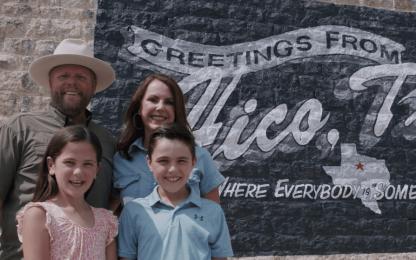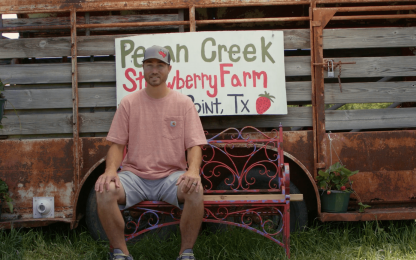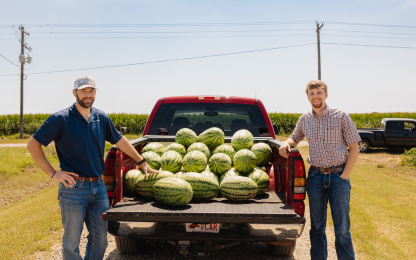From the Ground Up
In the heart of the Appalachian Mountains of West Virginia, Matt Hall and Chris Ziems have built a timber empire. The pair met while working together at Coastal Lumber Company in the 1990s. In 2002, they took their combined experience and branched out on their own to form High Mountain Timber (HMT) in Dailey, West Virginia.
HMT was built from the ground up. When Chris and Matt started, they worked out of their pickup trucks and had an office at Matt’s home. As the company began to grow, they bought a shed to serve as their workspace. Finally, in 2013, they constructed an office building.
Production Efficiency
Mulch and firewood are the main by-products of the HMT operation. The bark that comes off of the logs is broken down into mulch, while the wood chunks from manufacturing the logs becomes firewood.
“We’re trying to use the whole tree, from veneer to pulpwood,” said Matt.
HMT sells their mulch and firewood through both retail and wholesale outlets. While by-products are not the primary focus of the operation, this facet of their company has allowed them to become more environmentally conscious while bringing in additional revenue.
A Committed Partner
Matt and Chris have enjoyed a great working relationship with Farm Credit of the Virginias over the years.
“Farm Credit understands our industry, and they’re not afraid of it. They know agriculture very well, but they also understand timber and its long-term nature,” Matt said. “It’s hard to explain to people that we’re going to manage land throughout our lifetime and get one, two or three cuttings off of it, then plan for the next generation to have a harvest.”
Matt and Chris are proud of the business they’ve built, especially in a highly competitive market. They credit their success with staying flexible and being able to adapt to changes quickly.
Building HMT from the ground up was risky, but Matt and Chris put their all into it. Their future plans involve continuing their current operations at the log yard while expanding the by-products division, which has already seen a 50% growth over the past two years. Additionally, they have begun purchasing waste from other companies to generate more supplemental income. There’s no slowing down in sight.
This article was originally published in Farm Credit of the Virginias’s Leader



